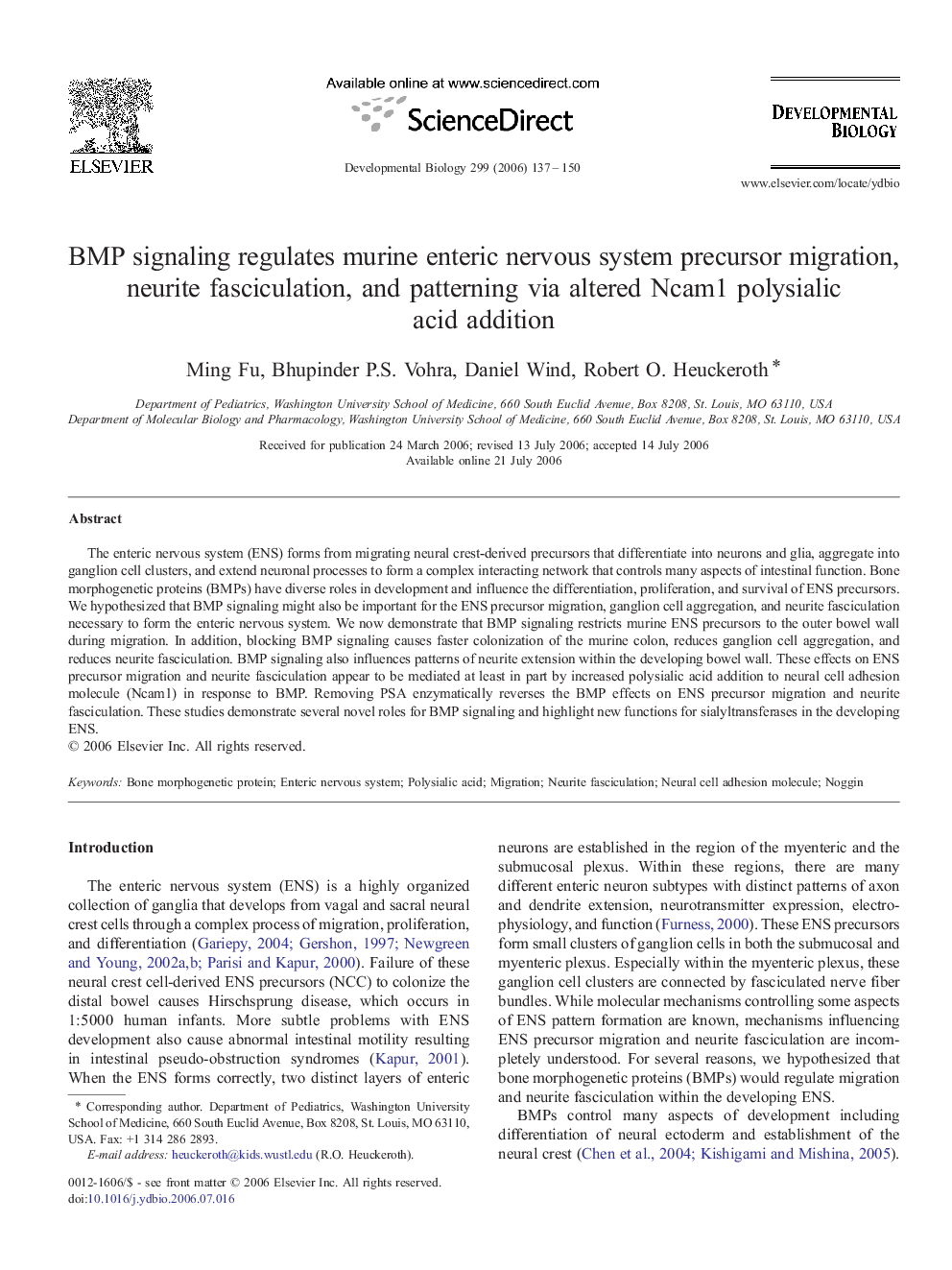| Article ID | Journal | Published Year | Pages | File Type |
|---|---|---|---|---|
| 2175512 | Developmental Biology | 2006 | 14 Pages |
The enteric nervous system (ENS) forms from migrating neural crest-derived precursors that differentiate into neurons and glia, aggregate into ganglion cell clusters, and extend neuronal processes to form a complex interacting network that controls many aspects of intestinal function. Bone morphogenetic proteins (BMPs) have diverse roles in development and influence the differentiation, proliferation, and survival of ENS precursors. We hypothesized that BMP signaling might also be important for the ENS precursor migration, ganglion cell aggregation, and neurite fasciculation necessary to form the enteric nervous system. We now demonstrate that BMP signaling restricts murine ENS precursors to the outer bowel wall during migration. In addition, blocking BMP signaling causes faster colonization of the murine colon, reduces ganglion cell aggregation, and reduces neurite fasciculation. BMP signaling also influences patterns of neurite extension within the developing bowel wall. These effects on ENS precursor migration and neurite fasciculation appear to be mediated at least in part by increased polysialic acid addition to neural cell adhesion molecule (Ncam1) in response to BMP. Removing PSA enzymatically reverses the BMP effects on ENS precursor migration and neurite fasciculation. These studies demonstrate several novel roles for BMP signaling and highlight new functions for sialyltransferases in the developing ENS.
